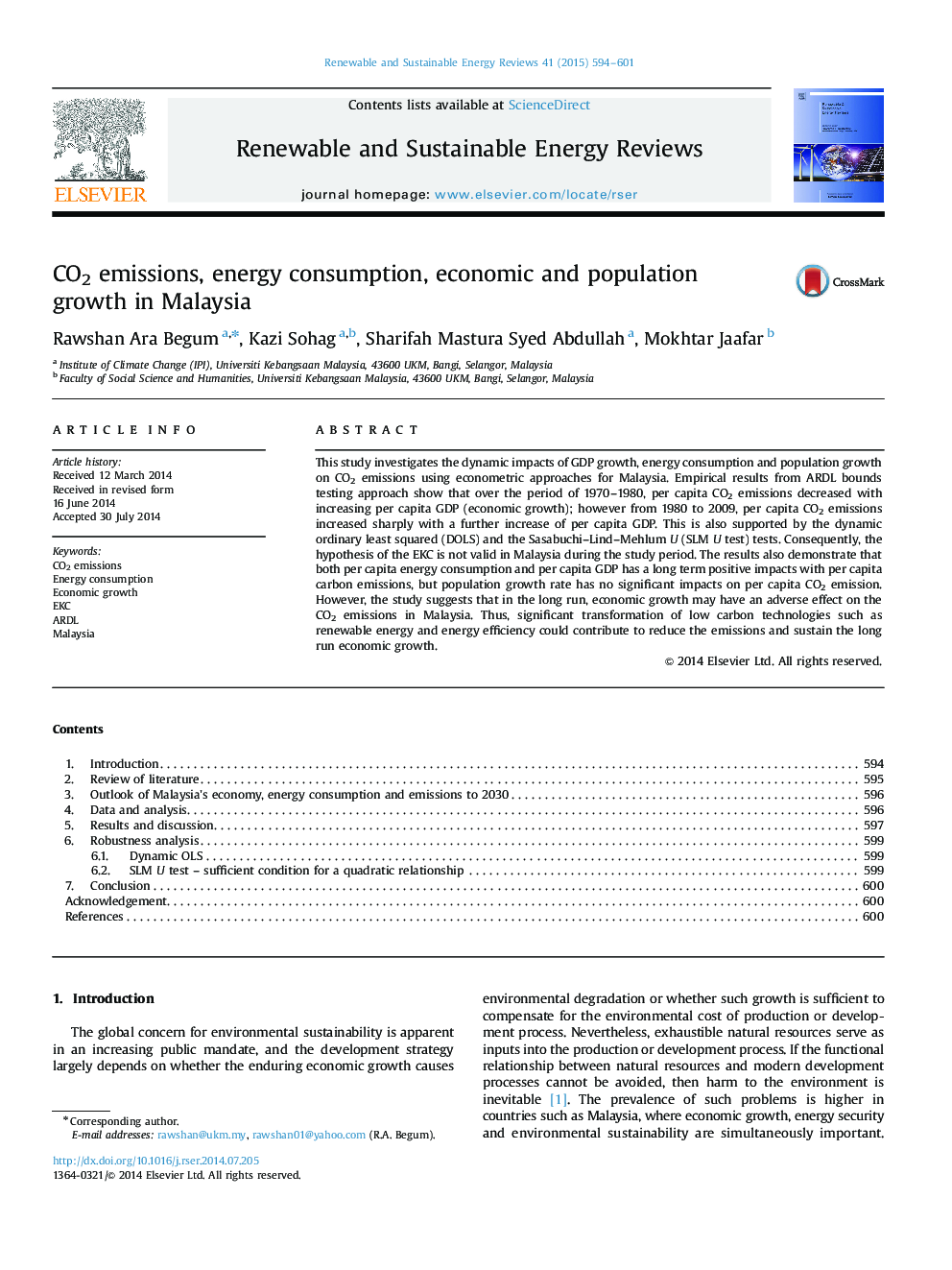| Article ID | Journal | Published Year | Pages | File Type |
|---|---|---|---|---|
| 8118552 | Renewable and Sustainable Energy Reviews | 2015 | 8 Pages |
Abstract
This study investigates the dynamic impacts of GDP growth, energy consumption and population growth on CO2 emissions using econometric approaches for Malaysia. Empirical results from ARDL bounds testing approach show that over the period of 1970-1980, per capita CO2 emissions decreased with increasing per capita GDP (economic growth); however from 1980 to 2009, per capita CO2 emissions increased sharply with a further increase of per capita GDP. This is also supported by the dynamic ordinary least squared (DOLS) and the Sasabuchi-Lind-Mehlum U (SLM U test) tests. Consequently, the hypothesis of the EKC is not valid in Malaysia during the study period. The results also demonstrate that both per capita energy consumption and per capita GDP has a long term positive impacts with per capita carbon emissions, but population growth rate has no significant impacts on per capita CO2 emission. However, the study suggests that in the long run, economic growth may have an adverse effect on the CO2 emissions in Malaysia. Thus, significant transformation of low carbon technologies such as renewable energy and energy efficiency could contribute to reduce the emissions and sustain the long run economic growth.
Related Topics
Physical Sciences and Engineering
Energy
Renewable Energy, Sustainability and the Environment
Authors
Rawshan Ara Begum, Kazi Sohag, Sharifah Mastura Syed Abdullah, Mokhtar Jaafar,
